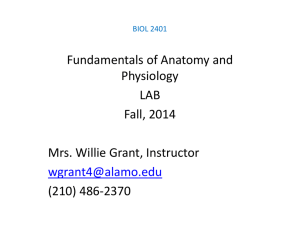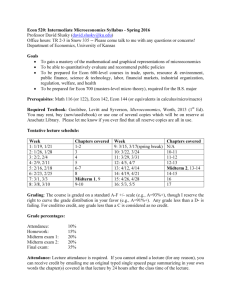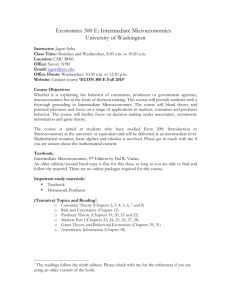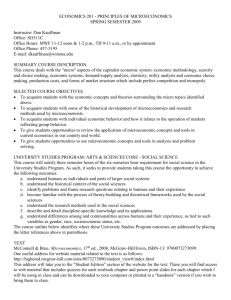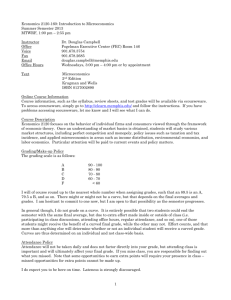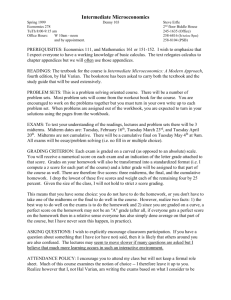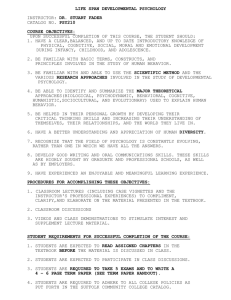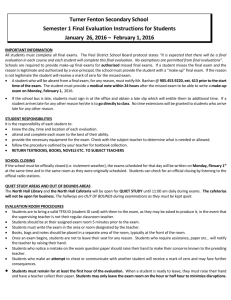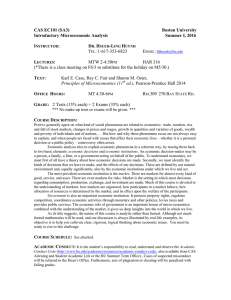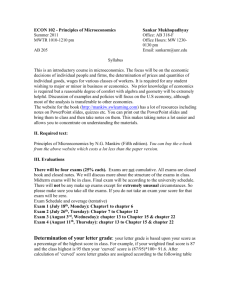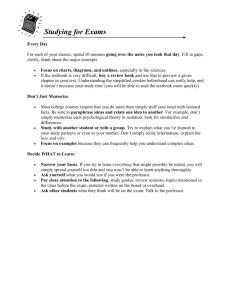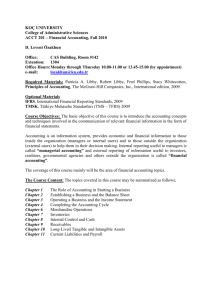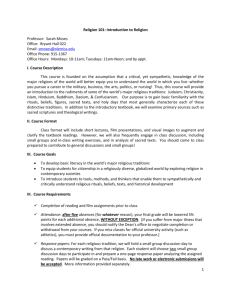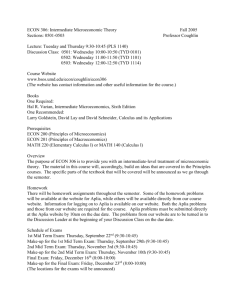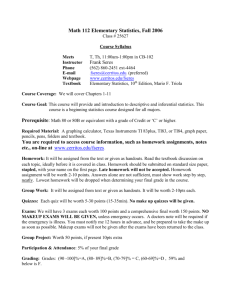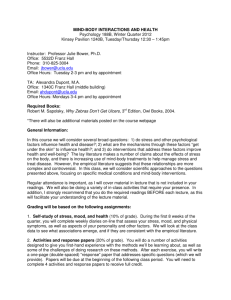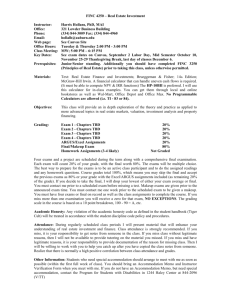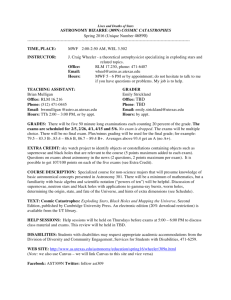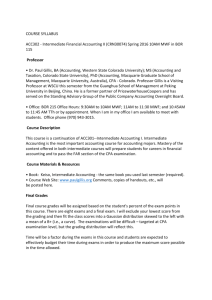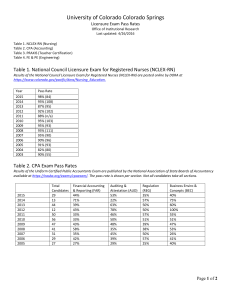KOÇ UNIVERSITY Department of Economics ECON 201
advertisement
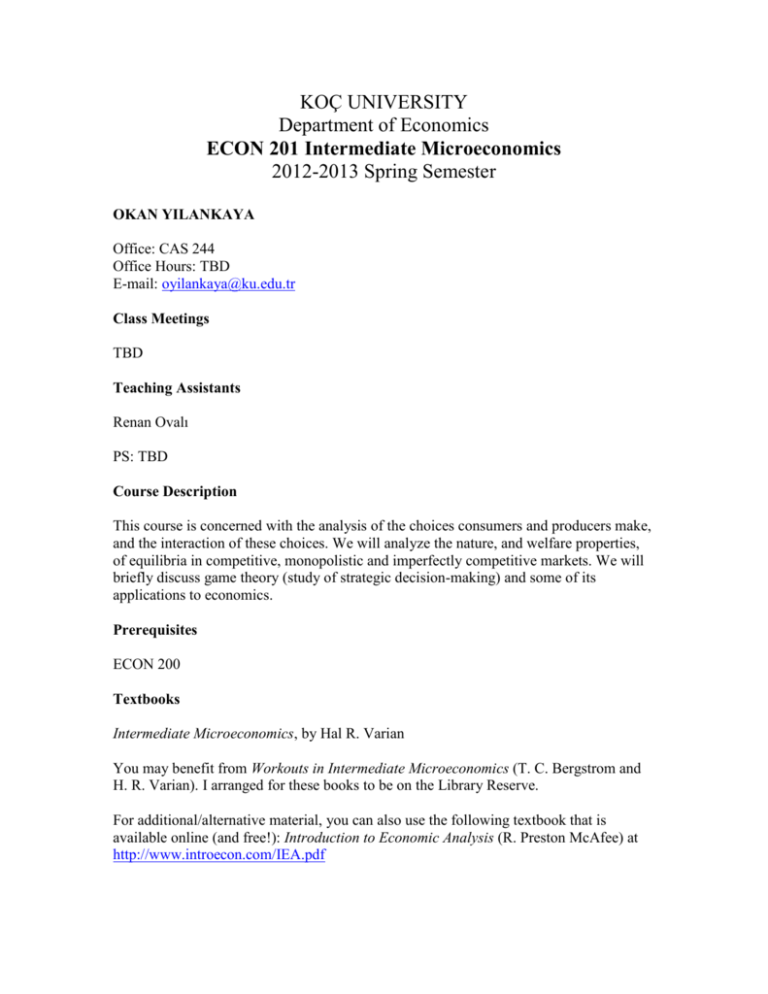
KOÇ UNIVERSITY Department of Economics ECON 201 Intermediate Microeconomics 2012-2013 Spring Semester OKAN YILANKAYA Office: CAS 244 Office Hours: TBD E-mail: oyilankaya@ku.edu.tr Class Meetings TBD Teaching Assistants Renan Ovalı PS: TBD Course Description This course is concerned with the analysis of the choices consumers and producers make, and the interaction of these choices. We will analyze the nature, and welfare properties, of equilibria in competitive, monopolistic and imperfectly competitive markets. We will briefly discuss game theory (study of strategic decision-making) and some of its applications to economics. Prerequisites ECON 200 Textbooks Intermediate Microeconomics, by Hal R. Varian You may benefit from Workouts in Intermediate Microeconomics (T. C. Bergstrom and H. R. Varian). I arranged for these books to be on the Library Reserve. For additional/alternative material, you can also use the following textbook that is available online (and free!): Introduction to Economic Analysis (R. Preston McAfee) at http://www.introecon.com/IEA.pdf Problem Sets There will be (approximately) seven homework assignments. Doing as many exercises as possible is essential in learning the course material. Here is a Chinese proverb that makes the point: I hear and I forget…I see and I remember…I do and I understand… The problem sets and their answers will be posted on the web page of the course, which you can access through my personal web page, as well as through KUAIS: http://home.ku.edu.tr/~oyilankaya Method of Evaluation There will be two midterm examinations. The first one will be sometime around Week 56, and the second one around Week 11-13. I will announce the exact dates as soon as I know them (since they are chosen by the administration, as this a course in the facultycore) and post them on the web page. The weights for your overall grade will be as follows: midterms 25% each, the final 40% and quizzes (in class, unannounced) 10%. Note that these weights will not change later in the term (which would be unfair), so please study accordingly. If you are unable to take one of the exams (for documented reasons only per university policy), you need to let me know and there will be make-up exams during the official make-up exams period after the finals. Because of the timing of the make-up exams, they will be cumulative, i.e., will include all the topics we cover in this class, in order to be fair to all students. The problem sets should be viewed as supplementary material. The benefits of solving these problems in a timely fashion are not reflected in the final grade weights. Following the lectures, reading the textbook and working on the problem sets are complementary activities. Do not expect to do well in this course by only reading the textbook just before the exams. Course Outline Introduction: (Chapter) 1 Consumer Theory: Preferences and Utility: 3 and 4 Budget Constraints: 2 Consumer Choice: 5 Demand: 6, 7.1-7.2, 15 Income and Substitution Effects: 8 Consumer Surplus: 14 Applications: Labor Supply: 9.8-9.9 Intertemporal Choice: 10 Producer Theory: Production: 18 Cost: 21, 20 Firm Supply: 22 Competitive Markets and Equilibrium: 23 General Equilibrium: 31 Monopoly: 24 Oligopoly: 27 Externalities and Public Goods: 34 This is not a definitive outline. We may change it a little bit as necessary.
